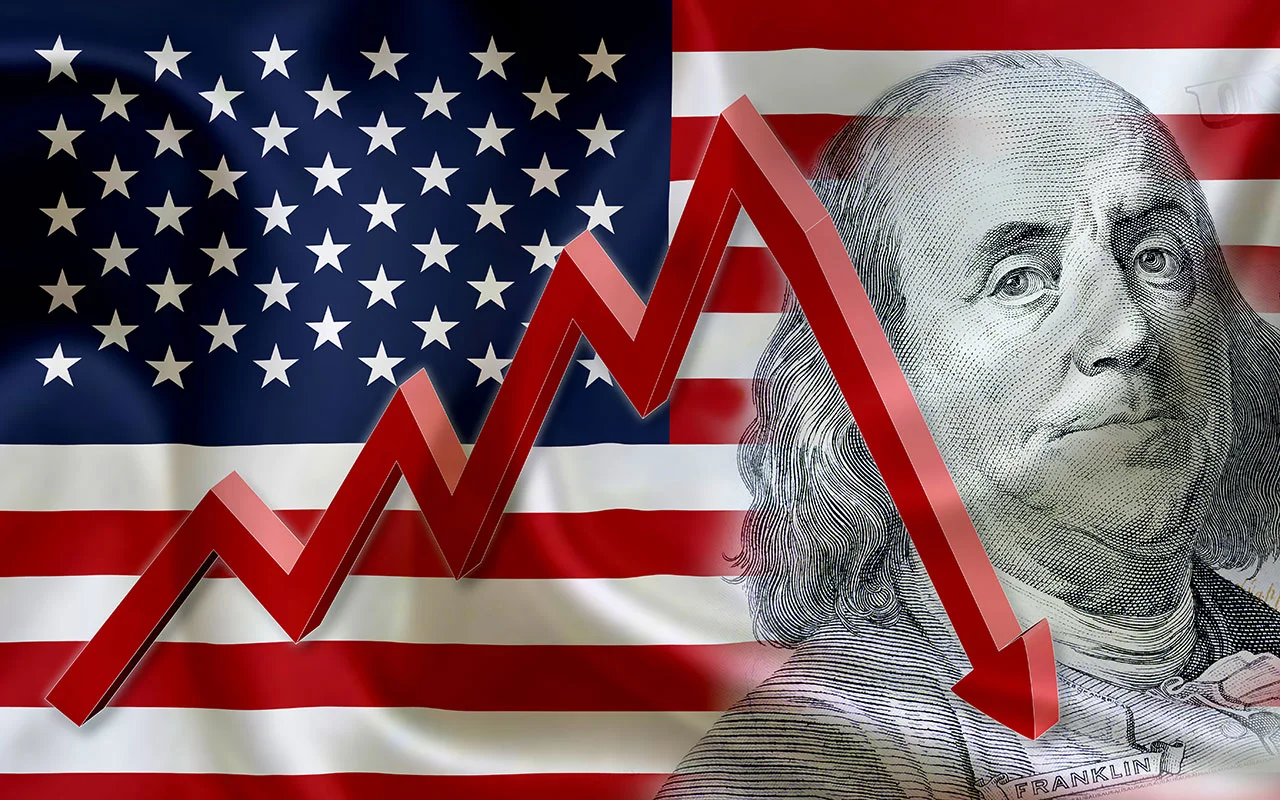Economist Predicts Rough Year Ahead for U.S. Economy Amid Trade Tensions
05.05.2025 20:00 2 min. read Alexander Stefanov
Mark Zandi, Chief Economist at Moody’s Analytics, is sounding the alarm over what he believes could be a turbulent stretch for the U.S. economy.
In a recent interview, Zandi cautioned that ongoing trade conflicts, rising tariffs, and global uncertainty are pushing the U.S. dangerously close to recession territory.
He believes there’s now a better-than-even chance that the world will slip into a recession this year. The outlook, according to Zandi, has been weighed down by deteriorating trade dynamics, with little sign of resolution. “Every day the trade war drags on,” he warned, “the damage grows.”
Zandi argued that the lack of clarity in economic policy is shaking business and consumer confidence. While a policy reversal could still avert the worst-case scenario, he admitted his optimism is fading. He expects the coming six to twelve months to test both markets and households, even if a formal recession doesn’t take hold.
The real estate sector, already strained by affordability and credit issues, could face some of the harshest impacts. Zandi’s warning joins a chorus of concern from other top names in finance. JPMorgan’s Jamie Dimon has cautioned about the drag of U.S.-China tensions, while economist Steve Hanke and Bridgewater’s Ray Dalio have both flagged systemic risks if current policies persist.
With recession odds climbing—now hovering around 72% on prediction markets—investors and businesses may need to brace for a period of economic stress as 2025 unfolds.
-
1
Dollar Dominance Fades: Asia Turns to Local Currencies and BRICS Bloc
09.06.2025 14:00 2 min. read -
2
Trump Reignites Trade War, Accuses China of Breaking Deal
30.05.2025 18:00 1 min. read -
3
Jamie Dimon Warns U.S. Risks Losing Dollar Dominance Without Swift Reform
02.06.2025 8:00 1 min. read -
4
Elon Musk Says Congress Is Bankrupting America
04.06.2025 14:00 2 min. read -
5
Trillions in Debt Payments Could Break U.S. Economy, Ray Dalio Predicts
06.06.2025 12:00 1 min. read
Billionaire Slams Meme Stock Hype and Sounds Alarm on U.S. Fiscal Health
Ray Dalio, the billionaire investor behind Bridgewater Associates, has taken aim at the growing obsession with meme stocks, warning that investors are falling for trends while ignoring the fundamentals.
Will Japan’s Central Bank Spark a Crypto Rally?
The Bank of Japan (BOJ)’s upcoming monetary policy meeting, set for June 16–17, could be the next major catalyst for global risk assets, including stocks and cryptocurrencies like Bitcoin.
Economist Who Called 1987 Crash Warns Markets Face Growing Risk
Mark Skousen, the economist who foresaw the 1987 market collapse, believes the current financial environment is entering a precarious phase.
Dollar Dominance Fades: Asia Turns to Local Currencies and BRICS Bloc
Across Asia, the U.S. dollar is rapidly losing ground as countries intensify efforts to reduce reliance on the greenback.
-
1
Dollar Dominance Fades: Asia Turns to Local Currencies and BRICS Bloc
09.06.2025 14:00 2 min. read -
2
Trump Reignites Trade War, Accuses China of Breaking Deal
30.05.2025 18:00 1 min. read -
3
Jamie Dimon Warns U.S. Risks Losing Dollar Dominance Without Swift Reform
02.06.2025 8:00 1 min. read -
4
Elon Musk Says Congress Is Bankrupting America
04.06.2025 14:00 2 min. read -
5
Trillions in Debt Payments Could Break U.S. Economy, Ray Dalio Predicts
06.06.2025 12:00 1 min. read


